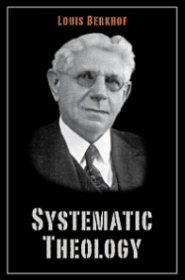 For quite some time Reformed theologians have, following various texts and nuances in Scripture, said there is a three-fold use of God’s moral law. Here’s how Louis Berkhof explained it:
For quite some time Reformed theologians have, following various texts and nuances in Scripture, said there is a three-fold use of God’s moral law. Here’s how Louis Berkhof explained it:
It is customary in theology to distinguish a three-fold use of the law.
1. The three defined. We distinguish:
a. A usus politicus or civilis. The law serves the purpose of restraining sin and promoting righteousness. Considered from this point of view, the law presupposes sin and is necessary on account of sin. It serves the purpose of God’s common grace in the world at large. This means that from this point of view it cannot be regarded a means of grace in the technical sense of the word.
b. A usus elenchticus or pedagogicus. In this capacity the law serves the purpose of bringing man under conviction of sin, and of making him conscious of his inability to meet the demands of the law. In that way the law becomes his tutor to lead him unto Christ, and thus becomes subservient to God’s gracious purpose of redemption.
c. A usus didacticus or normativus. This is the so-called tertius usus legis, the third use of the law. The law is a rule of life for believers, reminding them of their duties and leading them in the way of life and salvation. This third use of the law is denied by the Antinomians.
Shane Lems
Covenant Presbyterian Church (OPC)
Hammond, WI, 54015

